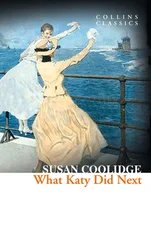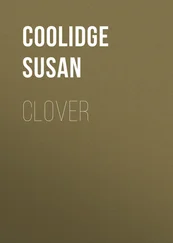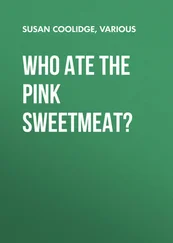Susan Coolidge - What Katy Did
Здесь есть возможность читать онлайн «Susan Coolidge - What Katy Did» — ознакомительный отрывок электронной книги совершенно бесплатно, а после прочтения отрывка купить полную версию. В некоторых случаях можно слушать аудио, скачать через торрент в формате fb2 и присутствует краткое содержание. Жанр: Классическая проза, на английском языке. Описание произведения, (предисловие) а так же отзывы посетителей доступны на портале библиотеки ЛибКат.
- Название:What Katy Did
- Автор:
- Жанр:
- Год:неизвестен
- ISBN:нет данных
- Рейтинг книги:5 / 5. Голосов: 1
-
Избранное:Добавить в избранное
- Отзывы:
-
Ваша оценка:
- 100
- 1
- 2
- 3
- 4
- 5
What Katy Did: краткое содержание, описание и аннотация
Предлагаем к чтению аннотацию, описание, краткое содержание или предисловие (зависит от того, что написал сам автор книги «What Katy Did»). Если вы не нашли необходимую информацию о книге — напишите в комментариях, мы постараемся отыскать её.
What Katy Did — читать онлайн ознакомительный отрывок
Ниже представлен текст книги, разбитый по страницам. Система сохранения места последней прочитанной страницы, позволяет с удобством читать онлайн бесплатно книгу «What Katy Did», без необходимости каждый раз заново искать на чём Вы остановились. Поставьте закладку, и сможете в любой момент перейти на страницу, на которой закончили чтение.
Интервал:
Закладка:
Katy always felt badly when Aunt Izzie spoke unkindly of her poor sick friend. She had tears in her eyes now, as she walked to the gate, and looked so very sober, that Imogen Clark, who stood there waiting, clasped her hands and said:
“Ah, I see! Your aristocratic Aunt refuses.”
Imogen’s real name was Elizabeth. She was rather a pretty girl, with a screwed-up, sentimental mouth, shiny brown hair, and a little round curl on each of her cheeks. These curls must have been fastened on with glue or tin tacks, one would think, for they never moved, however much she laughed or shook her head. Imogen was a bright girl, naturally, but she had read so many novels that her brain was completely turned. It was partly this which made her so attractive to Katy, who adored stories, and thought Imogen was a real heroine of romance.
“Oh no, she doesn’t,” she replied, hardly able to keep from laughing, at the idea of Aunt Izzie’s being called an “aristocratic relative”—“she says she shall be my hap—” But here Katy’s conscience gave a prick, and the sentence ended in “um, um, um—” “So you’ll come, won’t you, darling? I am so glad!”
“And I!” said Imogen, turning up her eyes theatrically.
From this time on till the end of the week, the children talked of nothing but Imogen’s visit, and the nice time they were going to have. Before breakfast on Saturday morning, Katy and Clover were at work building a beautiful bower of asparagus boughs under the trees. All the playthings were set out in order. Debby baked them some cinnamon cakes, the kitten had a pink ribbon tied round her neck, and the dolls, including “Pikery,” were arrayed in their best clothes.
About half-past ten Imogen arrived. She was dressed in a light-blue barège, with low neck and short sleeves, and wore coral beads in her hair, white satin slippers, and a pair of yellow gloves. The gloves and slippers were quite dirty, and the barège was old and darned; but the general effect was so very gorgeous, that the children, who were dressed for play, in gingham frocks and white aprons, were quite dazzled at the appearance of their guest.
“Oh, Imogen, you look just like a young lady in a story!” said simple Katy; whereupon Imogen tossed her head and rustled her skirts about more than ever.
Somehow, with these fine clothes, Imogen seemed to have put on a fine manner, quite different from the one she used every day. You know some people always do, when they go out visiting. You would almost have supposed that this was a different Imogen, who was kept in a box most of the time, and taken out for Sundays and grand occasions. She swam about, and diddled, and lisped, and looked at herself in the glass, and was generally grown-up and airy. When Aunt Izzie spoke to her, she fluttered and behaved so queerly, that Clover almost laughed; and even Katy, who could see nothing wrong in people she loved, was glad to carry her away to the playroom.
“Come out to the bower,” she said, putting her arm round the blue barège waist.
“A bower!” cried Imogen. “How sweet!” But when they reached the asparagus boughs her face fell. “Why it hasn’t any roof, or pinnacles, or any fountain!” she said.
“Why no, of course not,” said Clover, staring, “we made it ourselves.”
“Oh!” said Imogen. She was evidently disappointed. Katy and Clover felt mortified; but as their visitor did not care for the bower, they tried to think of something else.
“Let us go to the Loft,” they said.
So they all crossed the yard together. Imogen picked her way daintily in the white satin slippers, but when she saw the spiked post, she gave a scream.
“Oh, not up there, darling, not up there!” she cried; “never, never!”
“Oh, do try! It’s just as easy as can be,” pleaded Katy, going up and down half a dozen times in succession to show how easy it was. But Imogen wouldn’t be persuaded.
“Do not ask me,” she said affectedly; “my nerves would never stand such a thing! And besides—my dress!”
“What made you wear it?” said Philly, who was a plain-spoken child, and given to questions. While John whispered to Dorry, “That’s a real stupid girl. Let’s go off somewhere and play by ourselves.”
So, one by one, the small fry crept away, leaving Katy and Clover to entertain the visitor by themselves. They tried dolls, but Imogen did not care for dolls. Then they proposed to sit down in the shade, and cap verses, a game they all liked. But Imogen said that though she adored poetry, she never could remember any. So it ended in their going to the orchard, where Imogen ate a great many plums and early apples, and really seemed to enjoy herself. But when she could eat no more, a dreadful dulness fell over the party. At last Imogen said:
“Don’t you ever sit in the drawing-room?”
“The what?” asked Clover.
“The drawing-room,” repeated Imogen.
“Oh, she means the parlor!” cried Katy. “No, we don’t sit there except when Aunt Izzie has company to tea. It is all dark and poky, you know. Beside, it’s so much pleasanter to be out-doors. Don’t you think so?”
“Yes, sometimes,” replied Imogen, doubtfully, “but I think it would be pleasant to go in and sit there for a while, now. My head aches dreadfully, being out here in this horrid sun.”
Katy was at her wit’s end to know what to do. They scarcely ever went into the parlor, which Aunt Izzie regarded as a sort of sacred place. She kept cotton petticoats over all the chairs for fear of dust, and never opened the blinds for fear of flies. The idea of children with dusty boots going in there to sit! On the other hand, Katy’s natural politeness made it hard to refuse a visitor anything she asked for. And beside, it was dreadful to think that Imogen might go away and report “Katy Carr isn’t allowed to sit in the best room, even when she has company!” With a quaking heart she led the way to the parlor. She dared not open the blinds, so the room looked very dark. She could just see Imogen’s figure as she sat on the sofa, and Clover twirling uneasily about on the piano-stool. All the time she kept listening to hear if Aunt Izzie were not coming, and altogether the parlor was a dismal place to her; not half so pleasant as the asparagus bower, where they felt perfectly safe.
But Imogen, who, for the first time, seemed comfortable, began to talk. Her talk was about herself. Such stories she told about the things which had happened to her! All the young ladies in The Ledger put together, never had stranger adventures. Gradually, Katy and Clover got so interested that they left their seats and crouched down close to the sofa, listening with open mouths to these stories. Katy forgot to listen for Aunt Izzie. The parlor door swung open, but she did not notice it. She did not even hear the front door shut, when Papa came home to dinner.
Dr. Carr, stopping in the hall to glance over his newspaper, heard the high-pitched voice running on in the parlor. At first he hardly listened; then these words caught his ear:
“Oh, it was lovely, girls, perfectly delicious! I suppose I did look well, for I was all in white, with my hair let down, and just one rose, you know, here on top. And he leaned over me, and said in a low, deep tone, ‘Lady, I am a Brigand, but I feel the enchanting power of your beauty. You are free!’ ”
Dr. Carr pushed the door open a little farther. Nothing was to be seen but some indistinct figures, but he heard Katy’s voice in an eager tone:
“Oh, do go on. What happened next?”
“Who on earth have the children got in the parlor?” he asked Aunt Izzie, whom he found in the dining-room.
“The parlor!” cried Miss Izzie, wrathfully, “why, what are they there for?” Then going to the door, she called out, “Children, what are you doing in the parlor? Come out right away. I thought you were playing out-doors.”
Читать дальшеИнтервал:
Закладка:
Похожие книги на «What Katy Did»
Представляем Вашему вниманию похожие книги на «What Katy Did» списком для выбора. Мы отобрали схожую по названию и смыслу литературу в надежде предоставить читателям больше вариантов отыскать новые, интересные, ещё непрочитанные произведения.
Обсуждение, отзывы о книге «What Katy Did» и просто собственные мнения читателей. Оставьте ваши комментарии, напишите, что Вы думаете о произведении, его смысле или главных героях. Укажите что конкретно понравилось, а что нет, и почему Вы так считаете.












